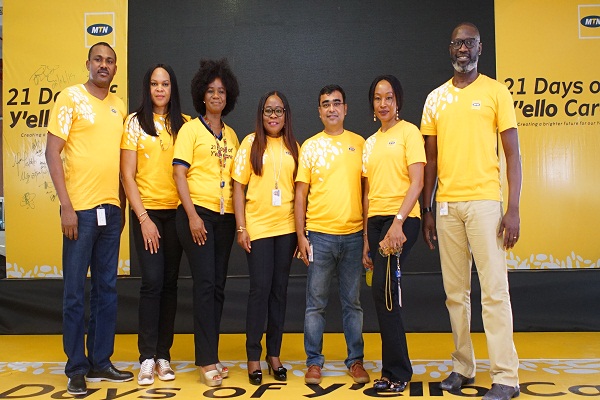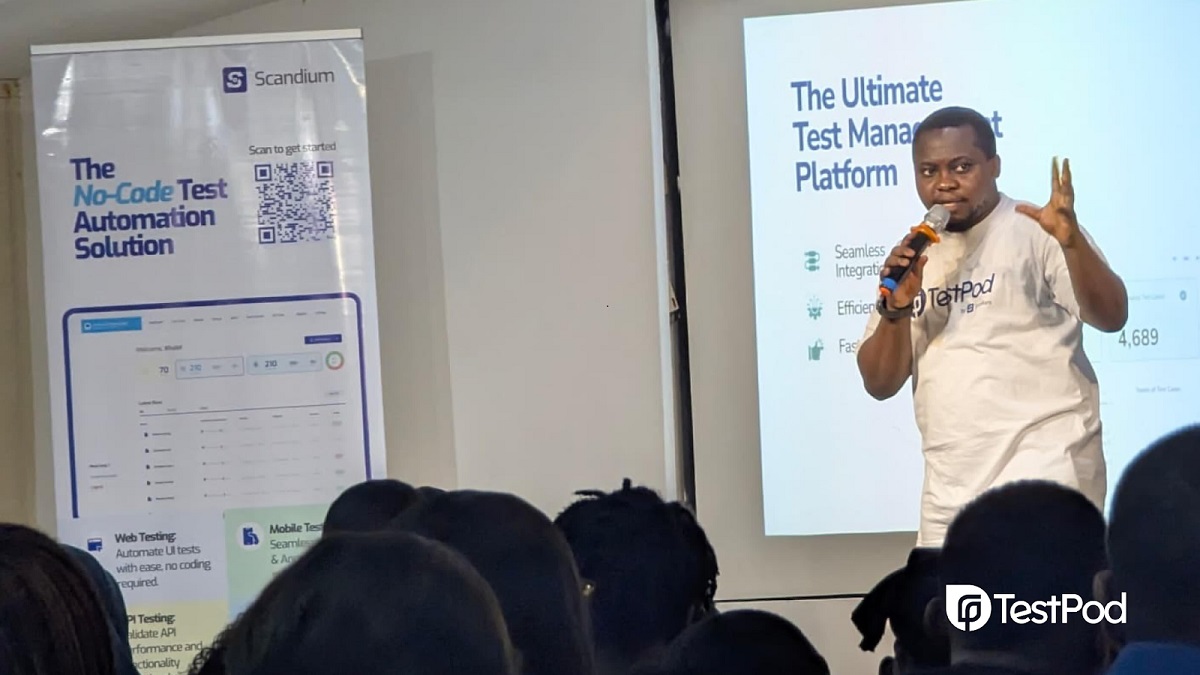Telecom
Glo Xchange Agents Hail Empowerment Scheme

The number of mobile money agents around the country has continued to swell as the Glo Xchange train moved to Imo, Benue, Niger, Plateau and Kogi over the weekend.
In the new locations, participants joined their fellow countrymen in other parts of the country to eulogize the benefits of the mobile money super-agent network.
About 1,500 potential agents gathered in Owerri, Markurdi, Minna, Jos and Lokoja to receive orientation and information on the technical details of the Glo Xchange Network.
They included Glo trade partners, sub-dealers, retailers, pharmacists, entrepreneurs, supermarket operators, salon operators, photographers, fast-food operators, Commercial Telephone Operators and other Small and Medium Scale business operators.
To deepen the penetration of Glo Xchange in the country, the company is partnering some key players in the financial institutions including First Monie, Ecobank, StanbicIBTC Bank and Zenith Bank. The company said that more banks would join the partnership in line with the Central Bank of Nigeria regulations.
At the programme, Glo mobile money experts gave orientation to the attendees as they were eager to know more about mobile money and how to operate the Glo Xchange network business.
They also gave the participants the opportunity to ask questions for further clarifications, after which they signed up as Glo Xchange Agents.
Speaking after the training at the Owerri Centre, Njoku Chinelo from Irete said the project was a “nice one from Globacom, and will greatly enhance business growth”.
Ogbonna Chioffor and Peter Ike spoke in the same vein. Chioffor called it a wonderful and encouraging opportunity created by Globacom “…which will facilitate convenience of monetary transactions and avoidance of bank stress, delay and risk”.
Ike said it was “pure empowerment of people by Globacom whereby one can start a business with funds as little as N10, 000”.
Abichi Okeke from Makurdi welcomed the programme from Globacom and said that it will profitably engage more Nigerian jobless youths
John Iorpuu from Afia Town, Ukun LGA in Benue state hailed Glo Xchange as another first from Globacom, adding that “it will ease and make monetary transaction more convenient than ever.”
James Pilaakya from Korina, Konshisha LGA Benue state said it is an impressive grassroots-oriented platform by Globacom, saying that it will make rural financial transaction possible where there are no banks.
The attendees also said Glo Xchange will facilitate financial transaction to the remote areas where there is no financial institution.
A statement from Esaie Diei , head of Mobile Money Financial Business, Globacom, disclosed that Globacom would continue to empower Nigerians economically while also encouraging the federal government’s financial policies of financial inclusion and cashless transactions.
The training sessions have so far held in over 20 cities including, Lekki, Ikeja, Ibadan, Kaduna, Umuahia, Akure, Ilorin, Oshogbo, Onitsha, Enugu, Port Harcourt and Warri. Others are Kano, Abuja, Benin and Abeokuta
Telecom
MTN Plans Second Public Offer in Nigeria

Ralph Mupita, president,MTN Group, has announced plans to reduce its shareholding in MTN Nigeria through a public offer after it returns to profitability.

The group aims to cut its stake from 76 percent to 65 percent in line with its longstanding commitment to deepen local ownership, according to ITWeb, South African tech publication.
Mupita, who disclosed the plan during an editors’ roundtable meeting this week, said “The only localisation we have as MTN Group is we have potentially a sell-down in Nigeria at some point in time, approximately 11 percent. This is something we have said long ago, that over time, we would want more Nigerians owning the company, and we are prepared to sell down to 65 percent. We are at around 76 percent,” he said.
The anticipated offer would mark MTN’s second major retail public offering in Nigeria, following its 2021 sale of 575 million MTN Nigeria shares to local investors.
That offer was oversubscribed, resulting in the allocation of 661.25 million shares, including a 15 percent greenshoe option. This reduced MTN’s stake in its Nigerian unit to 75.6 percent from 78.8 percent.
More than 126,000 investors participated in that round, including retail and institutional investors such as Nigerian pension funds, representing approximately 6.5 million contributors.
At the time in 2022, MTN Group announced plans to further reduce its stake to approximately 65 percent from 75.6 percent.
Mupita confirmed that the Group would only proceed with a new offer once MTN Nigeria resolves its negative equity position and resumes dividend payments.
Currently, MTN Nigeria’s shares are trading at N235 per share.
Despite reporting a revenue of N3.36 trillion in 2024, a 36.03 percent bump from N2.47 trillion in 2023, it posted a loss after tax of N400.44 billion, a 192.25 percent rise from N137.02 billion in 2023.,
This negative performance was driven by macroeconomic headwinds, including record inflation and a steep devaluation of the naira, which raised operating costs and wiped out investor value.
MTN Nigeria has fallen behind MTN South Africa as MTN Group’s largest revenue contributor.
However, the Group is projecting a rebound in 2025, citing key drivers such as recent tariff adjustments, operational restructuring, and improving macroeconomic indicators in Nigeria.
Speaking at the roundtable, Mupita highlighted that the Group is anticipating a V-shaped recovery in Nigeria’s service revenue. He pointed to the recent structural reforms, such as the removal of fuel subsidies, the naira stabilisation, and improved dollar availability.
“The continued normalisation of these factors, particularly naira stability, should have positive impacts on consumer spending power and our business operations,” Mupita noted in the Group’s financial statement for 2024 recently.
Telecom
MTN Staff Commission New Set of Classrooms at Iwerekun Community High School

In a remarkable demonstration of corporate volunteerism, MTN staff, through the Y’ello Care initiative, have renovated a school block at Iwerekun Community Senior High School, Lakowe. This effort has restored hope and significantly improved learning conditions for both students and teachers.

The project, led by dedicated MTN employees, is part of the annual Y’ello Care campaign, which focuses on empowering communities through education, digital inclusion, and economic support.
Prior to the renovation, students at Iwerekun Community Senior High School faced challenges, including deteriorating classrooms that hindered effective learning. Recognising the need for intervention, MTN staff stepped in to transform the learning space, creating a safe, conducive, and inspiring environment for both students and teachers.
At the commissioning ceremony, Honourable Jamiu Tolani Alli-Balogun, Commissioner of the Lagos State Ministry of Basic and Secondary Education, acknowledged the significance of MTN’s contribution to education: “The education sector worldwide thrives on collaboration and commitment between public and private partners. MTN’s generous contribution is truly recognised, and I express my deepest gratitude for its unwavering commitment to supporting education in Lagos State. This new facility will provide a conducive environment for teaching and learning, enabling our students to reach their full potential.”
Representing the Ojomu of Lakowe, Prince Mukaila Adeola expressed the community’s gratitude: “This is a rare opportunity, and it is not every day that Lakowe benefits from such support. We truly appreciate MTN for this contribution, and we look forward to even more support in the future.”
The renovated school block is equipped with improved water supply and an inverter included in a serene environment that enhances the learning experience. This renovation will ensure that students and teachers have a more comfortable and sustainable academic setting.
Speaking on the significance of the project, Tobe Okigbo, Chief Corporate Services and Sustainability Officer (CCSSO) at MTN Nigeria, emphasised the personal investment of MTN staff: “I want to emphasise that this commissioning was made possible by the dedicated staff of MTN. Although MTN has a Foundation funded by 1% of the company’s annual profits, the credit for this commissioning goes to the MTN Nigeria staff members who, through their personal contributions, made this happen.”
Beyond the fresh coat of paint and structural improvements, initiatives like this create a lasting impact and a sense of hope in the lives of the students. The addition of a reliable power source and water facility means that students no longer have to struggle with poor infrastructure, allowing them to focus on their education.
For many students, access to quality education remains a challenge—not just because of financial barriers but also due to poor infrastructure, lack of resources, and limited teacher support. Programmes like Y’ello Care, alongside other education-focused volunteer initiatives, are helping to fill these gaps by creating safe, well-equipped learning environments and equipping students with knowledge beyond the classroom.
With the successful completion of the Lakowe school project, MTN reaffirms its commitment to education and youth development. The company encourages more organisations to embrace volunteerism and community service, as collective action remains a powerful force for societal progress.
Telecom
Scandium Introduces TestPod to Revolutionize Software Testing Across Africa and Beyond

Today’s software ecosystem is moving fast, building quality digital products has never been more crucial and more complex. As teams accelerate release cycles using a blend of manual and automated testing, one persistent issue remains: test management is fragmented.

That’s the problem TestPod, a newly launched test management platform from the team behind Scandium, is built to solve.
TestPod officially launched on Friday, April 11, 2025, offering software teams (whether in Africa or anywhere else) a much-needed solution to centralize and track their testing processes across platforms and test types. Whether it’s manual, automated, exploratory, accessibility, performance, or regression testing, TestPod brings visibility, structure, and speed to fragmented QA workflows.
“We spoke to over 200 teams at different African startups and enterprises, and despite having some automation in place, at least 90% are still heavily reliant on manual testing, just like their global counterparts,” said AbdulAzeez Ogunjobi, CEO and Co-Founder of Scandium Systems.
He explains that while Scandium’s AI-powered no-code automation suite is already being used across web, mobile, and API products globally, TestPod addresses a more foundational gap: organizing and managing all forms of testing—not just automation.
“Furthering our mission to help teams build bug-free digital products, we’re launching TestPod to help them organize their software testing operations, regardless of what kind of testing they need to do,” he added.
The timing is critical. According to the World Quality Report 2024–25, 68% of organizations are exploring Generative AI in their QA workflows, but most still lack clarity on what tests are running, what’s failing, and how test coverage aligns with ongoing releases.
Meanwhile, Africa’s digital economy is booming. A recent McKinsey report estimates it could contribute over $712 billion to continental GDP by 2025. The continent now holds more than 1.1 billion registered mobile money accounts, and in 2023 alone, over $1 trillion in transactions were processed across Instant Payment Systems, according to AfricaNenda. Regulations are tightening. Quality, reliability, and user trust are becoming more central, as the continent churns out more tech solutions in expanding sectors.
Testing isn’t just about automation. It’s about knowing what’s working and what’s broken.” noted Sodeeq Elusoji, CTO and Co-Founder of Scandium. “The real bottleneck in testing isn’t always a lack of automation—it’s lack of visibility. You can’t improve what you can’t track, and that’s what TestPod delivers.”
Unlike traditional tools that prioritize rigid workflows, TestPod is lightweight, modern, and flexible, designed for agile teams who need to move fast. It supports test case authoring, tagging, execution tracking, and real-time dashboards.
“Testing has evolved, but the way teams manage tests hasn’t caught up. We’ve seen teams with advanced automation pipelines still tracking test outcomes in spreadsheets and Slack.” said Jafar Alabi, Vice President of Products and Business Development at Scandium.
While it integrates seamlessly with Scandium’s no-code test automation suite, TestPod is framework-agnostic, making it a perfect fit for teams using Selenium, Playwright, Cypress or other custom test stacks.
Backed by a proven team with success building Africa’s first no-code test automation platform, Scandium has already achieved 6-figure ARR and powers test automation across 120+ organizations in 15+ countries. With TestPod, they’re expanding that impact even further—from test execution to test orchestration.
TestPod is now available at testpod.io. Early access is open globally and free for teams of all sizes.
As Africa’s tech scene continues to accelerate—with fintech, health tech, and mobility leading the charge, TestPod is built to ensure these innovations are not just fast but flawless.

 E-Business2 days ago
E-Business2 days agoCyberattacks: ‘56 Percent of Cases Stem from Existing Logins

 News2 days ago
News2 days agoSenate Committee Partners with Kuda Bank to Tackle Compliance Crisis as Nigeria Loses ₦3.4 Trillion

 Broadcasting2 days ago
Broadcasting2 days agoSubscriber Withdraws Suit against MultiChoice, FCCPC over Price Hike

 E-Business2 days ago
E-Business2 days agoKaspersky Presents Insight on 14% Increase in Spyware Attacks on Businesses in Africa @ GITEX Africa

 General News3 days ago
General News3 days agoAFD Commits €3m to Africa’s Financial Inclusion

 E-Financial3 days ago
E-Financial3 days agoVerve Expands Payment Frontiers with Global Partnerships, Contactless Innovation

 Telecom2 days ago
Telecom2 days agoMTN Plans Second Public Offer in Nigeria

 E-Financial2 days ago
E-Financial2 days agoSterling Bank Reiterates Transfer Fees Removal






















